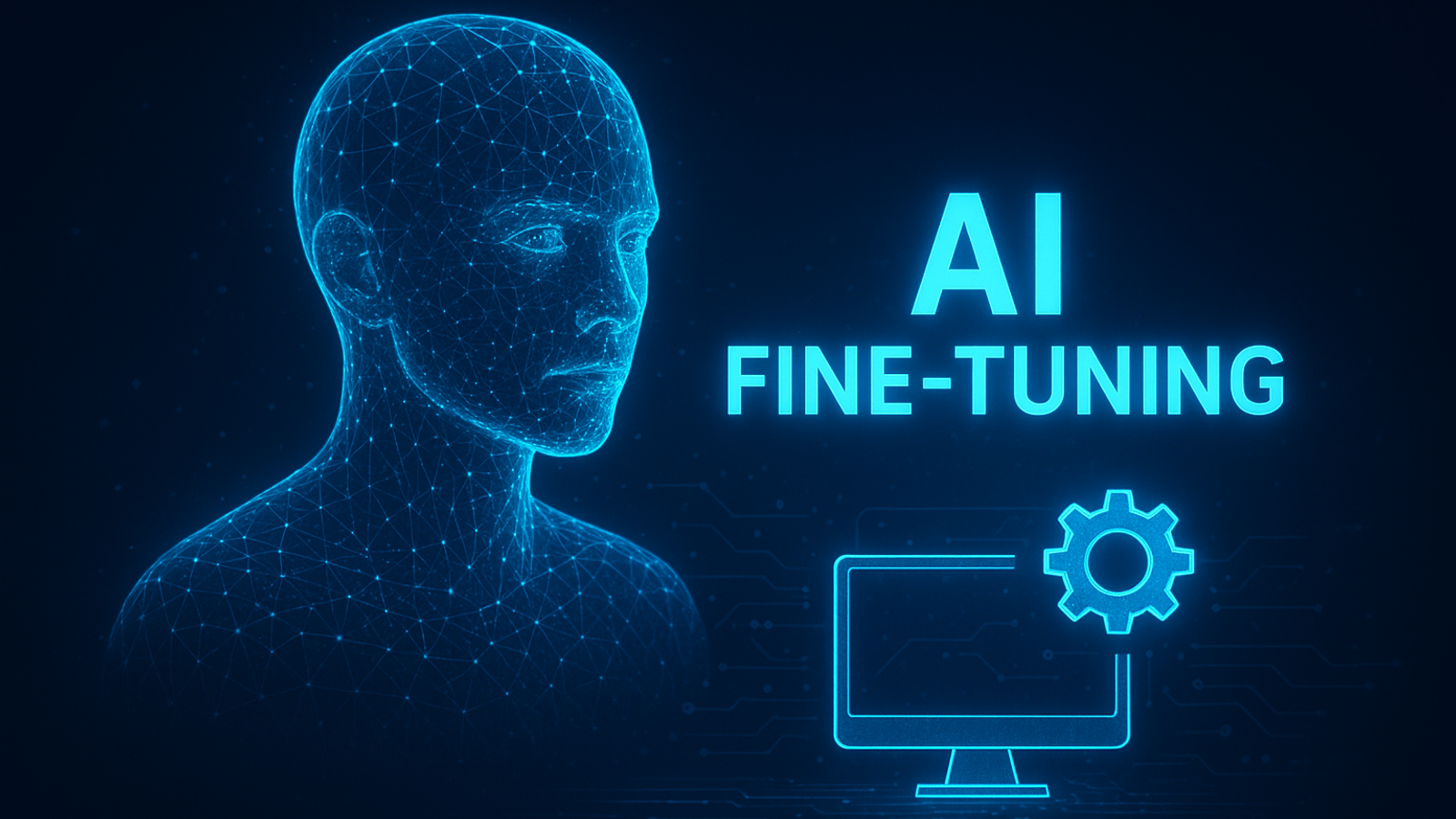How to Fine-Tune AI Models for Your Business
Published: August 19, 2025 | By John Walter

Introduction
AI models like GPT have transformed industries with their ability to generate insights, automate tasks, and enhance customer experiences. But to make these models truly effective for your business, fine-tuning is the key.
What is Fine-Tuning?
Fine-tuning is the process of adapting a pre-trained AI model to perform better in a specific domain. Instead of training from scratch, you leverage an existing model and customize it with your own business data.
Why Fine-Tune AI Models?
Pre-trained models are general-purpose and may not fully understand your industry-specific terms or requirements. Fine-tuning improves:
- Accuracy on domain-specific tasks
- Customer personalization
- Efficiency in workflows
- Compliance with industry standards
Steps to Fine-Tune an AI Model
- Define Your Goal – Identify the use case, such as customer support, document classification, or forecasting.
- Collect and Prepare Data – Gather domain-specific datasets and clean them for quality.
- Choose the Right Base Model – Select a model like GPT, BERT, or LLaMA depending on your task.
- Fine-Tune the Model – Train it on your data with the right hyperparameters.
- Evaluate and Test – Measure performance with real-world tasks and adjust if needed.
- Deploy and Monitor – Integrate into business systems and continuously monitor for drift.
Use Cases by Industry
- Healthcare: Automating patient communication, medical summaries, and research assistance.
- Finance: Fraud detection, customer service chatbots, and compliance automation.
- Retail & E-commerce: Personalized recommendations, product categorization, and demand forecasting.
- Legal: Document review, compliance checks, and contract analysis.
Challenges to Consider
While fine-tuning offers great advantages, challenges include:
- Data privacy and compliance issues
- Cost of computational resources
- Need for continuous retraining
- Avoiding bias and ensuring fairness
Conclusion
Fine-tuning AI models empowers businesses to go beyond generic automation and create solutions tailored to their needs. With the right approach, you can unlock AI's true potential to improve decision-making, efficiency, and customer satisfaction.